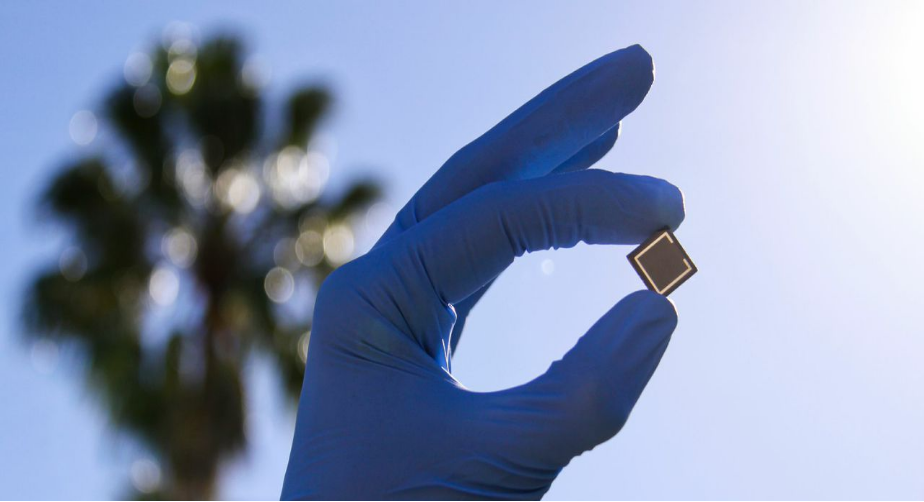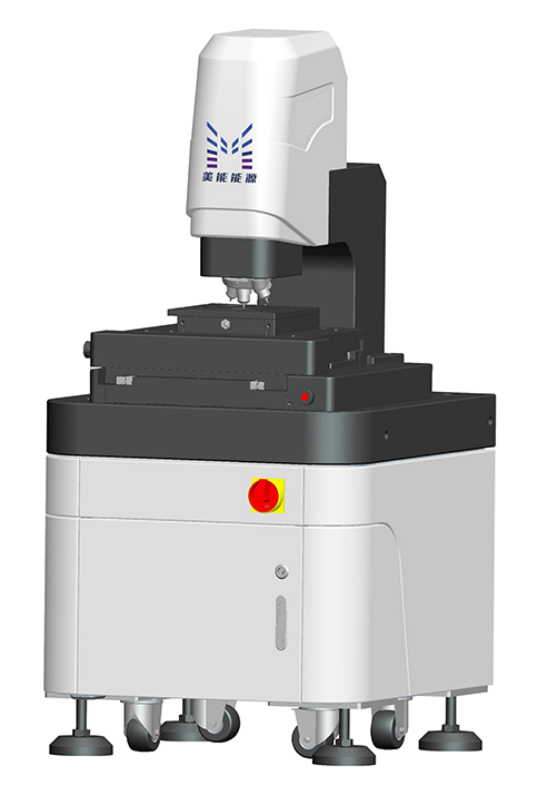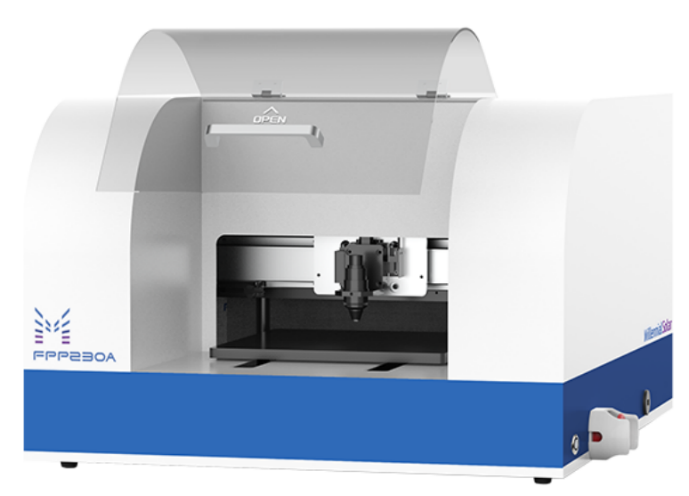
量子效率测试仪
PL/EL一体机
Sinton硅片少子寿命测试仪
Sinton硅块少子寿命测试仪
绒面反射率测试仪
3D共聚焦显微镜
在线四探针方阻测试仪
全自动扫描四探针方阻测试仪
在线薄膜厚度测试仪
晶化率测试仪
Horiba显微共焦拉曼光谱仪
傅里叶红外光谱仪
霍尔效应测试仪
分光光度计
全光谱椭偏仪
Horiba椭圆偏振光谱仪
TLM接触电阻率测试仪
超景深显微镜
网版智能影像测量仪
全自动影像测量仪
卧式拉力机
电池片稳态光衰老化试验箱
电池片紫外老化试验箱
电池片拉脱力综合测试仪
外观检验台
湿漏电测试系统
组件实验室EL测试仪
紫外老化试验箱
稳态光衰老化试验箱
电流连续性监测系统
PID测试系统
旁路二极管测试系统
LeTID测试系统
反向电流过载系统
脉冲电压测试系统
绝缘耐压测试仪
接地连续性测试仪
绝缘耐压接地测试仪
湿热环境试验箱
湿冻环境试验箱
热循环试验箱
动态机械载荷测试机
静态机械载荷测试机
冰雹冲击试验机
引出端强度试验机
霰弹冲击试验机
抗划伤(切割)测试机
剥离试验机
万能材料试验机(单臂)
万能材料试验机(双臂)
光伏玻璃透过率测试仪
醋酸测试试验箱
交联度测试系统
二极管接线盒综合测试仪
落球冲击试验机
半自动四探针
全自动探针式台阶仪
多通道太阳能MPPT系统
Horiba稳瞬态荧光光谱仪
大面积钙钛矿方阻椭偏二合一测试仪
大面积钙钛矿影像显微二合一监测站
钙钛矿P1激光划线测试仪
钙钛矿在线PL测试仪
钙钛矿在线方阻测试仪
钙钛矿在线膜厚测试仪
钙钛矿工艺检测工作站
手持式IV测试仪
便携式EL测试仪
手持热成像测试仪
户外组件多通道测试系统
光伏逆变器电能质量测试仪
无人机EL检测仪
IV测试仪
IVEL分选机
助力钙钛矿电池发展 | 美能光伏与您携手共聚钙钛矿技术、设备和材料论坛
日期:2023-09-06浏览量:655
随着碳中和的实行,太阳能电池获得了空前的发展,作为第三代太阳能电池领跑者的钙钛矿电池,以极高的光电转换效率和较低的制造成本等一系列优势,受到了光伏各企业的广泛关注和重视。为了使钙钛矿电池的品质更容易的达到产业化标准,「美能光伏」研制出了一系列先进新颖的检测设备,并凭借独特的太阳能电池全套解决方案,助力电池厂商更高效的解决电池质量问题,从而满足用户严苛的质量要求。

为进一步加强钙钛矿光伏领域的技术探讨与创新,推动钙钛矿与叠层电池的产业化进程,「美能光伏」将于9月11日-9月12日在江苏常州参加钙钛矿技术、设备和材料论坛,此论坛以钙钛矿技术为主题,将探讨光伏行业展望与钙钛矿和叠层电池市场前景。
会议将主要围绕全球钙钛矿学术、科研与产业化最新进展,钙钛矿光伏器件实验室制备与工业化生产工艺、设备和材料,钙钛矿电池成本下降路径与关键设备选型,钙钛矿和叠层电池转换效率、稳定性与测试标准,服务于钙钛矿和叠层电池的封装技术与封装材料等论点进行深刻讨论,且分环节进行逐一探讨。
![]()
美能3D共聚焦显微镜

商务联系:张经理 400-008-6690
美能3D共聚焦显微镜是以光学技术为原理、结合精密Z向扫描模块、3D建模算法等对器件表面进行非接触式扫描并建立表面3D图像,通过系统软件对光栅的高度与宽度、绒面上的金字塔数量进行定量检测,以反馈其中的清洗制绒、丝网印刷工艺质量。
● 精确可靠的3D测量,实现实时共聚焦显微图像
● 超高共聚焦镜头,Z轴显示分辨率可达1nm
● 198-39966倍最大综合倍率,精确测量亚微米级形貌
● 全自动光栅绒面测量,快速生成数据
● 全面反馈清洗制绒与丝网印刷工艺
● 赋予多种共聚焦色彩图像
● 一体化操作,中文界面,友好的测量分析软件
![]()
美能四探针电阻测试仪

商务联系:张经理 400-008-6690
美能四探针电阻测试仪可以对最大230mm的样品进行快速、自动的扫描,获得样品不同位置的方阻/电阻率分布信息,可广泛适用于光伏、半导体、合金、陶瓷等诸多领域。
● 超宽测量范围,测量0.1MΩ~100MΩ薄层电阻
● 高精密测量,动态测试重复率可达0.2%
● 全自动多点扫描,多种预设方案亦可自定义调节
● 快速材料表征,可自动执行矫正因子计算
「美能光伏」从始至终都秉承以品质服务为先的信念,竭力提供高效率的检测服务和高性能的检测设备,并运用精湛的检测技术助力光伏企业用户更高效的解决光伏电池和组件的质量问题,未来,「美能光伏」将继续秉承服务为先、品质为本的理念,为光伏企业用户制造出更加优异的检测产品。









































































